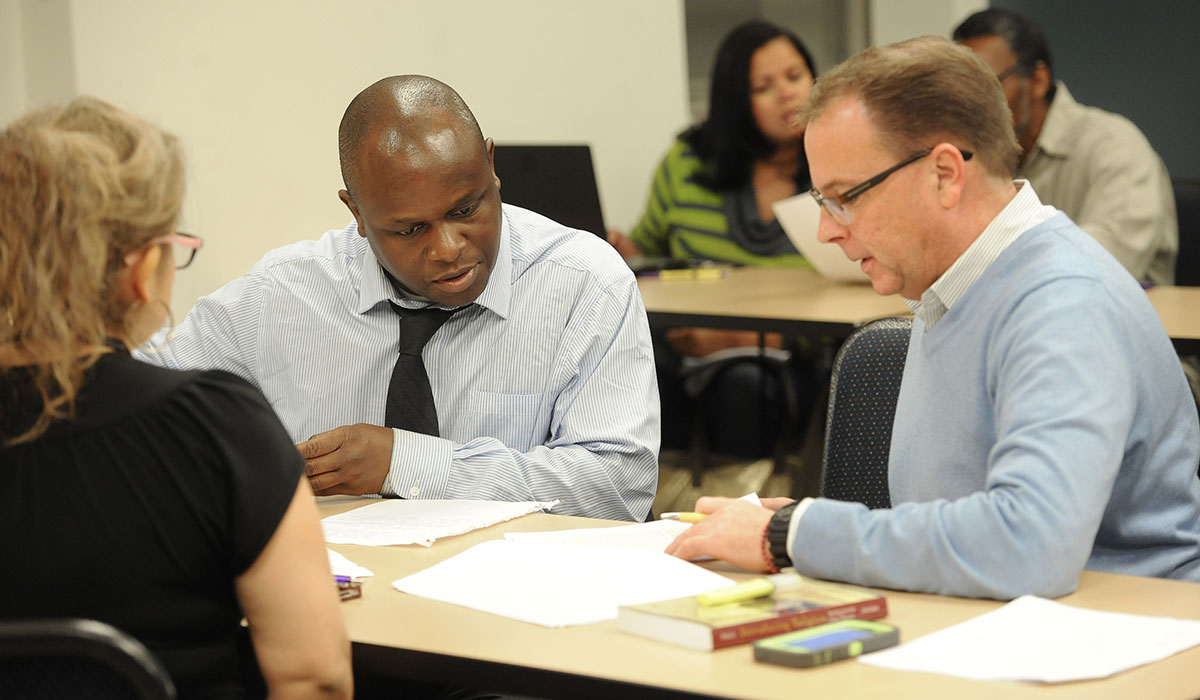The School of Professional Studies (SPS) was established as University College in 1979 by the Board of Trustees to extend the educational resources and programs of the university to adult students wanting to pursue academic and professional credentials. SPS regards its service to adult students as a special part of The Catholic University of America's overall educational mission.
Programs are designed with a maximum of flexibility to assist in balancing the responsibilities of work and family along with academic goals. Students can choose to attend in-person evening classes on-campus or online, in both full semester or accelerated formats. SPS also works with business and professional groups to meet the professional training and certification needs of their members.
SPS offers many advantages:
- Academic programs leading to bachelor's degrees from an internationally recognized research university.
- Faculty that includes practicing professionals who can relate theory to the practical needs of working professionals.
- Flexible degree and certificate programs designed to meet the students' individual needs, either part-time or full-time.
- Classes that meet evenings and/or online for those who work during the day.
- Complete access to the Internet, technology and library resources, recreational facilities, and more, for every enrolled student regardless of full-time or part-time status.
- Streamlined admission and advising tailored to the needs of students.
- Assistance locating financial aid to help with tuition, books, and other expenses.
- Flexible transfer credit policy.
- Convenience of a Metro stop on the Red Line at Brookland-CUA and on-campus parking.
Goals
SPS seeks to prepare the individual to function as an informed, practical, knowledgeable, and morally alert member of American society. SPS therefore has the following goals:
- To provide programs of instruction grounded in the liberal arts.
- To provide an education program which places the pursuit of professional excellence within the context of human, social, and religious values.
- To provide instructional designs which emphasize the possibilities for applying academic learning to the solution of professional and social problems.
- To afford students sufficient concentration in a selected field or in related fields of study to further each student's particular professional interests.
- To provide class formats, schedules, and, where necessary, financial assistance, designed to assist working adults to progress steadily toward completing their degrees.

